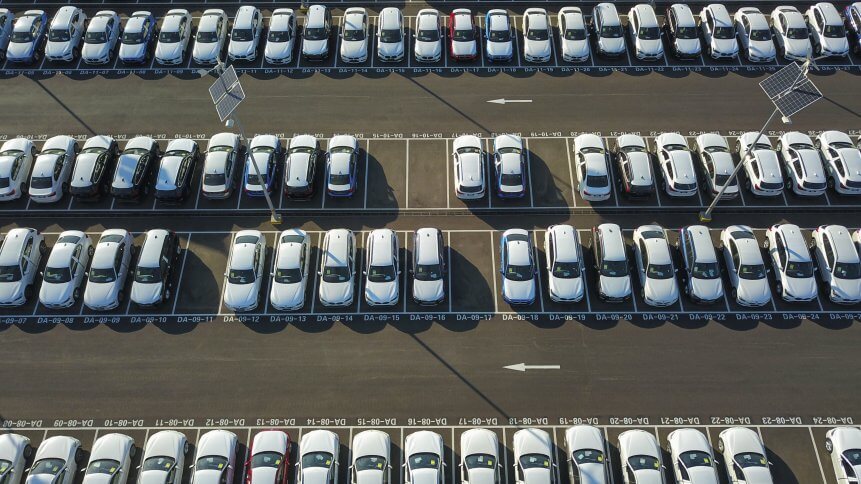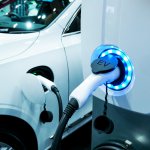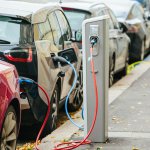BMW & Ford invest US$130m in solid state batteries for EVs

- Ford and BMW are leading a US$130 million funding round in a solid-state battery startup, Solid Power
- The carmakers hope to use the next-generation batteries in electric vehicles by the end of this decade
- Solid Power makes so-called solid-state batteries, which don’t use the liquid electrolyte found in conventional lithium-ion batteries that power most electric vehicles
Automakers BMW and Ford are investing US$130 million in solid-state battery startup Solid Power in a push to reduce the cost and increase the range of their future electric vehicles (EVs). Ford initially contributed to an earlier investment round in 2019, and now both automakers have joint agreements to use the technology in upcoming electric vehicles that will arrive by 2030.
Yet to be used in mass-market cars, solid-state batteries promise to offer greater energy density compared to the lithium-ion batteries typically used in today’s electric vehicles. Solid Power uses sulfide-based cells and promises that its solid electrolyte is not flammable, and it says they deliver more than 50% more energy density. The startup produces them using a manufacturing infrastructure similar to that used for lithium-ion battery production.
A BloombergNEF (New Energy Finance) report from December 2020 said that the production costs of manufacturing solid-state batteries could be 40% that of current lithium-ion batteries, when they reach full-scale production. However, Ford’s chief product platform and operations officer Hau Thai-Tang told CNBC that its investment in solid-state batteries is currently “significantly smaller” than for lithium-ion.
According to Solid Power’s CEO and co-founder Doug Campbell, Solid Power will begin production of automotive batteries early next year. They’ll be used for the testing and development of upcoming Ford and BMW vehicles starting then, too. Ford had announced last week that it’s opening a US$185 million lab called “Ford Ion Park” next year to develop new processes to produce solid-state battery packs in-house.
Ford’s Hau said the automaker believes the industry will start transitioning from lithium-ion batteries to solid-state over the next decade. He declined to disclose Ford’s total investment in solid-state batteries but said it’s significantly smaller than its lithium-ion investment at this time.
“We think it’s realistic that by the end of this decade, there’s a good chance that this is something we can go into production with,” remarked Hau. BMW said it also expects to have solid-state batteries in production EVs by the end of the decade. A demo vehicle featuring the technology is expected before 2025, according to a company spokesman.
Why solid-state batteries for EVs?
Realistically speaking, most EVs have a range of fewer than 300 miles and it takes more than an hour to recharge their battery packs. The cells also lose nearly a third of their capacity within a decade, and they pose a serious safety risk because of their flammable materials. The decades-known solution has been the solid-state battery, and it’s simply down to the fact that, instead of a conventional liquid electrolyte, the stuff that ferries lithium ions between electrodes uses a solid electrolyte.
Also, the battery’s negative terminal, called its anode, is made from pure lithium metal. This combination would send its energy density through the roof, enable ultra-fast charging, while also eliminating the risk of battery fires. EVs account for about 60% of all lithium-ion batteries made today, so IDTechEx predicts that solid-state batteries will represent a US$6 billion industry by 2030.
As of now, the battery market is currently dominated by East Asian companies. European and US firms are striving to win this EV battery race in order to shift attention away from Japan, China, and South Korea. The Asia Pacific region dominated the solid-state battery market over the last couple of years, with the highest share of 33.0% in 2019. From both a technology and a business point of view, the development of solid-state batteries has become part of a next-generational battery strategy. It has become a global market, with regional interests and governmental support indicative of its importance.
Alas, the high costs associated with the initial-stage development of solid-state batteries are expected to hinder the commercial viability of the product, reports suggest. In addition, the growing impact of the pandemic on the automotive supply chain is expected to further impede market growth. Battery pack manufacturers, electrode material producers, raw material suppliers, and others have suffered a major setback, and are estimated to take a significant amount of time to recover.










